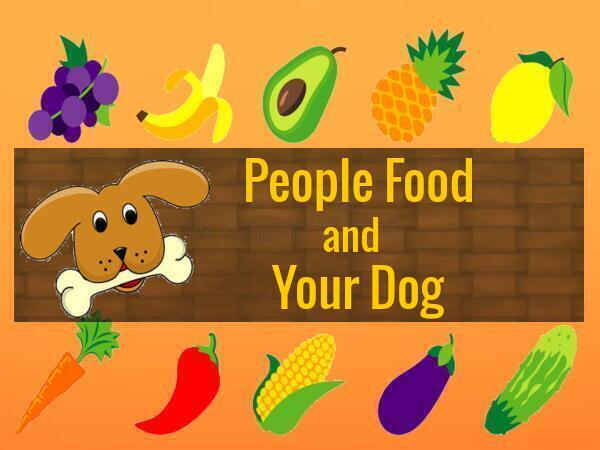For many of us, summertime is quickly approaching. Many of us are looking forward to outdoor activities and bringing home all sorts of fresh fruits and vegetables. This is the time of year we start thinking about taking our dogs on trips with us and sharing our food. Before beginning our outdoor activities is the perfect time to ask ourselves, “Wait! Is this food safe for my dog to eat?”
That’s a good question! Some foods we enjoy are very healthy and safe for dogs, while others are harmful, and could even be deadly. Even with those healthy and safe foods, I would recommend feeding them to your dog in moderation, because too much can cause weight gain and other unpleasant side effects. Another thing to remember is that, like us, different dogs respond to foods in different ways. Some may be lactose intolerant, while others may not have a very good response to bread. You may want to introduce new food gradually, and in very small amounts, to learn how your dog responds to them.
That being said, here’s a general list of foods you can share with your dog, foods you can share but in limited amounts, and foods you should never give your pet:
Can Share:
Fruits:
- Apples (but never the seeds, which contain cyanide)
- Bananas
- Blackberries
- Blueberries
- Mangoes
- Oranges
- Pineapples
- Strawberries
- Watermelon (but not the seeds)
Grains:
- Bread
- Plain oatmeal
- Popcorn (plain, air-popped popcorn fully popped)
- Rice
Protein:
- Beef
- Chicken (remove the bones first)
- Eggs (cook them first, to prevent possible Salmonella poisoning)
- Peanut butter (not a variety that contains xylitol as this is toxic, go for the low salt variety, and keep an eye on the calorie content)
- Cooked pork
- Cooked salmon
- Cooked shrimp
- Turkey (removing the skin first)
Vegetables:
- Broccoli
- Carrots (make sure to cut them into small pieces so your dog doesn’t choke)
- Celery
- Corn (not corn on the cob, because it can be a choking hazard, and difficult to digest)
- Green peas
- Sweet potatoes
Limit:
- Honey (high in calories)
- Salt (can lead to salt poisoning or dehydration)
Fruit:
- Cherries (limit amount as may cause upset stomach, and no pits because they are toxic and contain cyanide),
- Tomatoes if ripe (green tomatoes may be toxic to dogs)
Protein:
- Cheese (some dogs may have digestion issues)
- Almonds if plain and unsalted (digestion issues)
- Cashews if plain and unsalted (high in fat and calories)
- Milk (some dogs are lactose intolerant and milk can cause upset stomach)
- Peanuts if plain and unsalted (high in fat and may cause pancreatitis)
Vegetables:
- Potatoes (as long as they’re cooked; uncooked potatoes have a toxic compound called solanine)
Can’t Share:
- Chocolate (contains theobromine and caffeine, which dogs can’t metabolize very well)
- Garlic (contains a chemical which damages red blood cells)
- Nutmeg (contains myristicin, which can be toxic)
Fruit:
- Avocados (contains a toxin which is very poisonous and causes breathing difficulty)
- Grapes and raisins (can lead to rapid kidney failure and death)
- Lemons and limes (the skin contains a chemical which can lead to diarrhea and possible death)
Protein:
- Macadamia nuts (has an unknown toxin which causes muscle weakness, tremors, and depression)
Vegetables:
- Onions (contains compounds which damage red blood cells)
The good news is that many of our foods can be shared with our dogs. Just remember to keep the salt level down, cook your protein sources, and never share the seeds from fruit.
